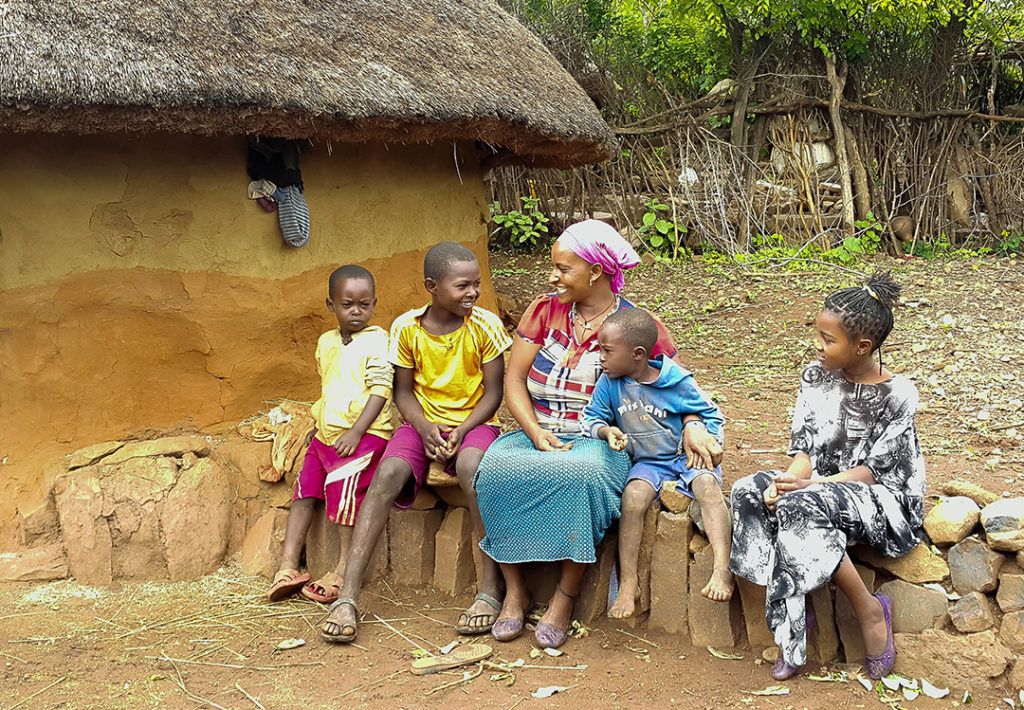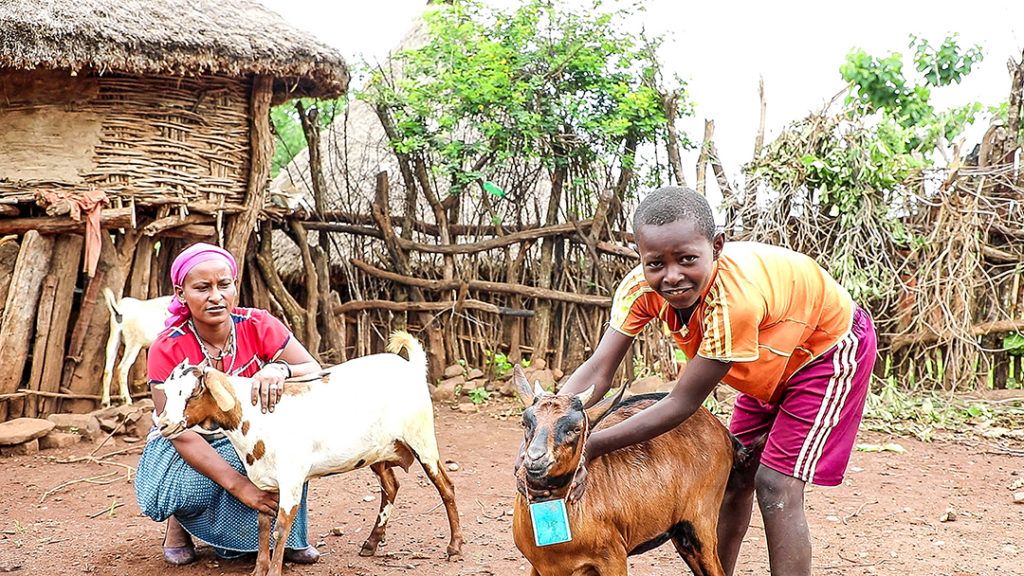 Stories
Stories
May 28, 2021 • 2 min read
Felekech Alemayehu is a 29-year-old widow who lives in Follo Tole Village in the Oromia region of Ethiopia.
A mother of three boys and a girl, Felekech has struggled to provide for the family since her husband passed away. A small farm in her back garden and another plot of land are her only source of income. She works tirelessly but the harvest fails to comfortably feed her whole family.
Life was already a struggle when the desert locust swarms arrived on her doorstep last year.

Felekech and her children tend to their farm
A wave of destruction
Desert Locusts are considered the most destructive migratory pests in the world, devouring large areas of crops and grasses meant for people and livestock. According to the UN’s Food and Agriculture Organization (FAO), a swarm of 40-80 million locusts can consume the amount of food equivalent to that eaten by 35,000 people in a day.
When the desert locusts invaded the entire district last year everything completely changed. The locust wiped out crops which represented six-months of hard work for Felekech in a matter of hours. She watched helplessly while her farm was destroyed by the unexpected invader.
“It was shocking. All crops and other products were destroyed. It was so upsetting for a single mother like me who has no one by her side,” Felekech says.
Unfortunately, Felekech was not the only victim. All the farms in her village were devastated.
Last year, 12 local administrative areas in the Teltelle district of the Oromia Region were seriously affected, impacting 3,211 households and a total area of 3,275 hectares of crop land and almost 8,000 hectares of grazing lands.
Hope returns
With funding from EU Humanitarian Aid, GOAL teams are supporting thousands of families in the region. Over 16,368 people like Felekech have been reached so far with financial assistance.
After losing her harvest to the pests, Felekech has also been provided with new seeds to sow. She can farm her plots of land and provide for her children once again.
“I can’t thank GOAL enough for what they did for us. I was able to survive the hardest period ever of our lives and provide for the family because of the support. I would have had nothing to plant if it wasn’t for GOAL.” Felekech says.

With support from GOAL, Felekech was also able to buy a couple of female goats. Hope has returned to her life but she still lives in fear that the locusts will return.
“We are happy to see the new crop on the farm, but we are still worried. We saw how we ended up with nothing last year. So, we are still afraid of the desert locust. I hope the Government and aid workers will help us to find a way to protect our farm from the locusts.”
You can support GOAL’s work in Ethiopia with a donation today.

